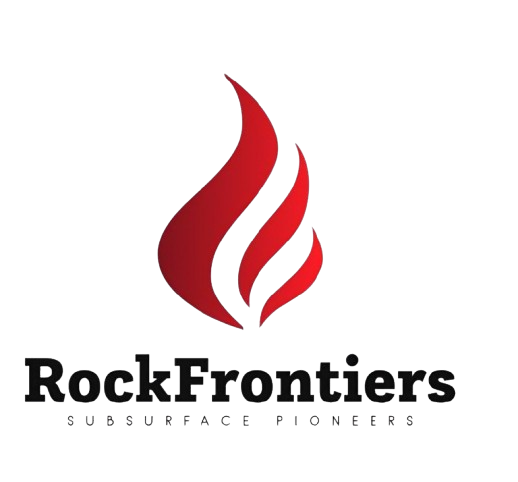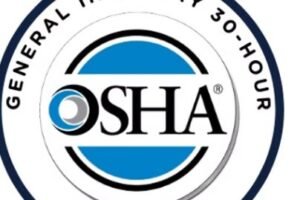🧪 Rock Typing Characterization of Uncored Reservoir Sediments
📘 Course Description: This course focuses on advanced methodologies to perform rock typing and reservoir quality characterization in the absence of core data, a common challenge in many exploration and development projects. Participants will learn how to leverage well logs, …
Overview
📘 Course Description:
This course focuses on advanced methodologies to perform rock typing and reservoir quality characterization in the absence of core data, a common challenge in many exploration and development projects. Participants will learn how to leverage well logs, cuttings, seismic attributes, and analog databases to infer rock types, petrophysical properties, and flow units. The course emphasizes integrating geological, petrophysical, and statistical tools to build reliable subsurface models and minimize uncertainty.
🎯 Who Should Attend:
-
Petrophysicists & Reservoir Engineers
-
Geologists & Geomodellers
-
Geoscientists working in data-limited fields
-
Asset Development Teams
-
Subsurface Data Analysts
-
Technical Managers and QC/QA reviewers
🧾 Training Format:
-
Duration: 5 Days
-
Mode: In-person or Virtual Live
-
Methodology: Lectures, exercises, case studies, and log-based analysis workshops
-
Materials: Annotated log examples, thin-section visuals, flow unit workflows
🗓️ Daily Agenda with Time Breakdown
🟨 Day 1 – Fundamentals of Rock Typing and Challenges without Core
| Time | Topic |
|---|---|
| 09:00 – 09:30 | Course Introduction and Objectives |
| 09:30 – 10:30 | What is Rock Typing? Key Parameters and Industry Context |
| 10:30 – 10:45 | ☕ Coffee Break |
| 10:45 – 12:15 | Importance of Rock Typing in Reservoir Development |
| 12:15 – 13:15 | 🍽️ Lunch Break |
| 13:15 – 14:45 | Core vs. Non-core Data: Opportunities and Limitations |
| 14:45 – 15:00 | ☕ Coffee Break |
| 15:00 – 16:30 | Data Sources: Cuttings, Logs, Mud Logs, Seismic, Analogs |
🟨 Day 2 – Petrophysical Methods for Rock Typing Without Core
| Time | Topic |
|---|---|
| 09:00 – 10:30 | Using Logs for Rock Type Classification (GR, RHOB, NPHI, DT) |
| 10:30 – 10:45 | ☕ Coffee Break |
| 10:45 – 12:15 | Crossplots and Multi-log Integration Techniques |
| 12:15 – 13:15 | 🍽️ Lunch Break |
| 13:15 – 14:45 | Use of Cutoffs and Electrofacies for Rock Typing |
| 14:45 – 15:00 | ☕ Coffee Break |
| 15:00 – 16:30 | Case Study: Identifying Flow Units in Clastic Reservoirs |
🟨 Day 3 – Geological and Seismic Integration
| Time | Topic |
|---|---|
| 09:00 – 10:30 | Reservoir Architecture and Sedimentology as Input to Rock Typing |
| 10:30 – 10:45 | ☕ Coffee Break |
| 10:45 – 12:15 | Using Seismic Attributes & Inversion for Rock Type Estimation |
| 12:15 – 13:15 | 🍽️ Lunch Break |
| 13:15 – 14:45 | Depositional Environment and Analog Matching |
| 14:45 – 15:00 | ☕ Coffee Break |
| 15:00 – 16:30 | Rock Typing in Heterogeneous & Channelized Reservoirs |
🟨 Day 4 – Advanced Tools and Uncertainty Handling
| Time | Topic |
|---|---|
| 09:00 – 10:30 | Machine Learning for Rock Typing from Log Data (Intro & Examples) |
| 10:30 – 10:45 | ☕ Coffee Break |
| 10:45 – 12:15 | Multi-attribute & Statistical Classification Models |
| 12:15 – 13:15 | 🍽️ Lunch Break |
| 13:15 – 14:45 | Managing Uncertainty in Non-Cored Zones |
| 14:45 – 15:00 | ☕ Coffee Break |
| 15:00 – 16:30 | Volumetric Implications of Rock Typing Choices |
🟨 Day 5 – Applications and Integrated Case Studies
| Time | Topic |
|---|---|
| 09:00 – 10:30 | Group Workshop: Rock Typing in a Data-Limited Well |
| 10:30 – 10:45 | ☕ Coffee Break |
| 10:45 – 12:15 | Dynamic Behavior Prediction Based on Rock Types |
| 12:15 – 13:15 | 🍽️ Lunch Break |
| 13:15 – 14:45 | Regional Analog-Based Rock Typing Approaches |
| 14:45 – 15:00 | ☕ Coffee Break |
| 15:00 – 16:30 | Final Q&A, Summary, Discussion and Certification |
Target audiences
- Reservoir Engineers, Geologists
You May Like
📘 Underbalanced Drilling (UBD) Techniques and Safety
🎯 Course Description: This intensive 5-day program focuses on Underbalanced Drilling (UBD) – an advanced technique used to drill wells where the hydrostatic pressure of the fluid is intentionally kept below formation pressure. Participants will learn how to implement UBD …
📘 IOSH Managing Safely
🎯 Course Description: A practical, 5-day program designed to help managers and supervisors learn how to manage safety and environmental responsibilities in their teams. Emphasis is placed on identifying risks, measuring performance, and leading safely using internationally recognized good practices. …
📘 IWCF Level 3 Well Control (Surface BOP)
🎯 Course Description: This is an intensive course aimed at drilling / well service personnel needing to gain supervisory competence in well control using surface blow‑out preventers (BOP) under the IWCF standard. It covers theory, hands‑on practice, and assessments for …
Advanced Specialist Petroleum GeoMechanics
📘 Course Description: This elite-level course is tailored for petroleum geomechanics specialists and senior subsurface professionals engaged in complex field development projects. It provides a deep technical dive into stress modeling, anisotropic rock behavior, coupled geomechanical-reservoir simulation, fault/fracture mechanics, and …
📘 OSHA 30‑Hour General Industry Safety and Health
🎯 Course Description: This 5‑day course provides in‐depth knowledge of workplace safety and health in general industry sectors. It covers OSHA regulations, hazard recognition, safety programs, and industry best practices. Participants will gain the expertise needed to maintain a safe …






